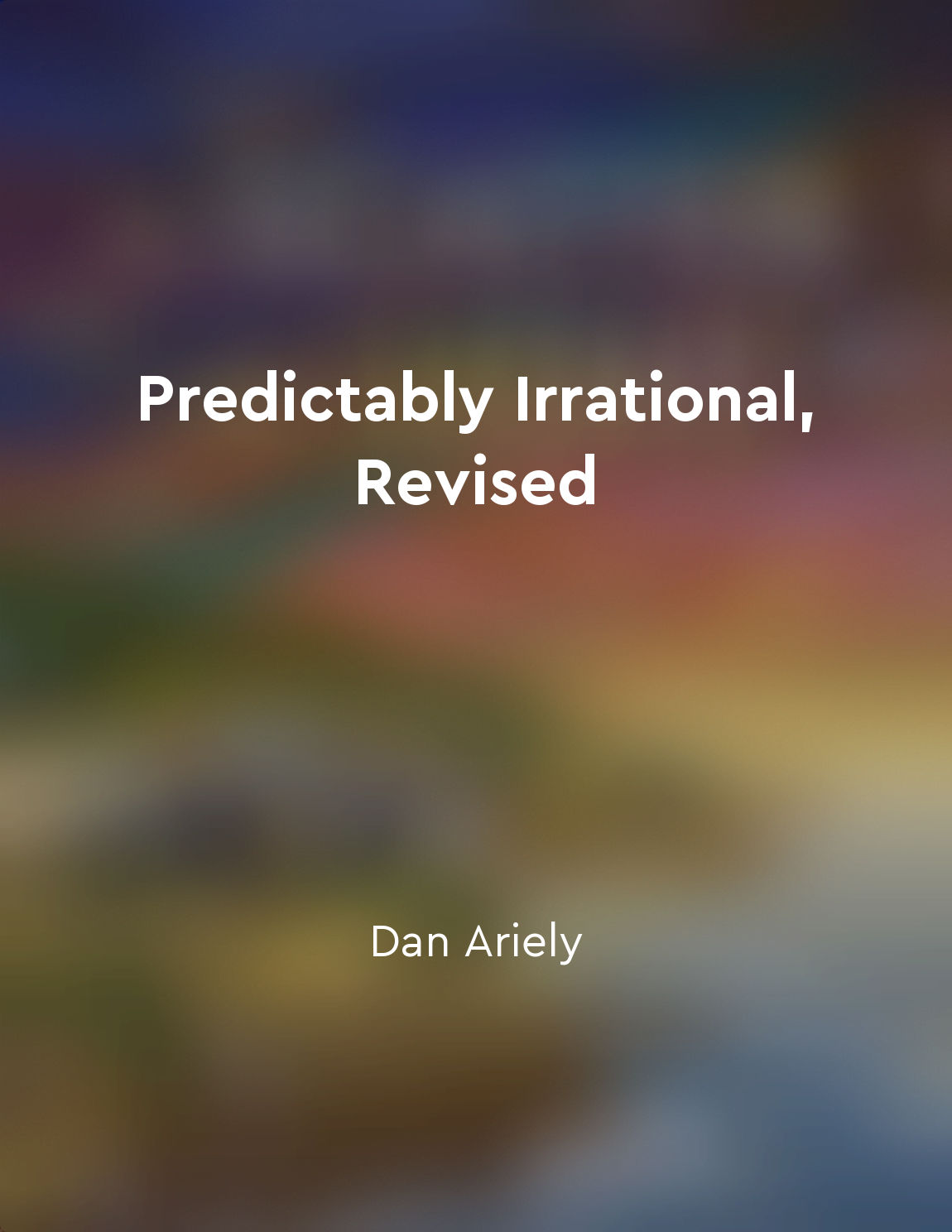Audio available in app
Understanding our irrationality can help us make better decisions from "summary" of Predictably Irrational, Revised by Dan Ariely
In order to make better decisions, we must first come to terms with our own irrationality. By accepting that our decision-making processes are not always logical or rational, we can begin to understand how our emotions, biases, and cognitive limitations influence the choices we make. This self-awareness is crucial for improving our ability to make sound judgments in various aspects of our lives. One common mistake we often make is assuming that we always act in our best interest. However, numerous studies have shown that our decisions are often swayed by factors we may not even be aware of. For example, we tend to be influenced by social norms, emotional cues, and the way choices are presented to us. By recognizing these influences, we can learn to make decisions that align more closely with our true preferences and values. Moreover, understanding our irrationality can help us avoid falling into common traps that lead to poor decision-making. For instance, we may be prone to overvaluing immediate rewards at the expense of long-term gains, a phenomenon known as present bias. By recognizing this tendency, we can take steps to mitigate its impact and make choices that are more beneficial in the long run. Furthermore, acknowledging our irrationality can also empower us to challenge the status quo and think outside the box. When we realize that our decisions are not always driven by rational thought, we can question conventional wisdom and explore alternative options that may have been previously overlooked. This willingness to embrace uncertainty and complexity can open up new possibilities and lead to more innovative and effective decisions.- By embracing our irrationality and understanding how it shapes our decision-making processes, we can become more mindful and intentional in our choices. This self-awareness allows us to navigate the complexities of decision-making with greater clarity and insight, ultimately leading to better outcomes in both our personal and professional lives.


